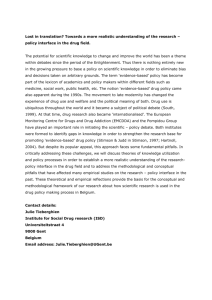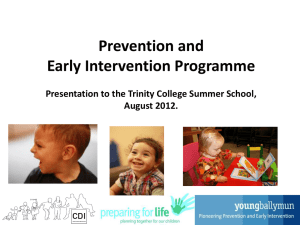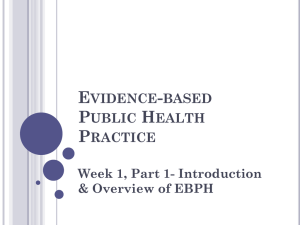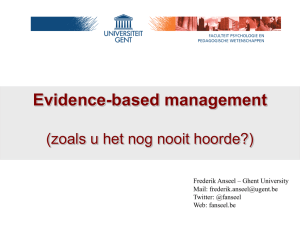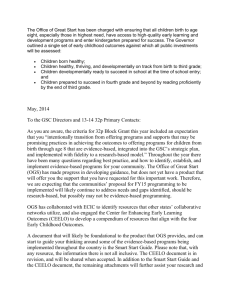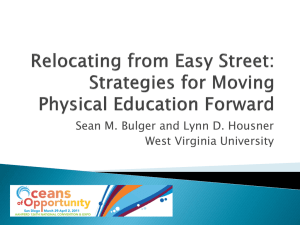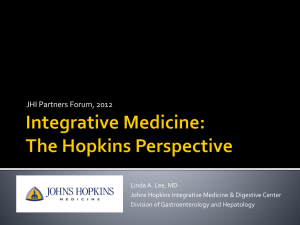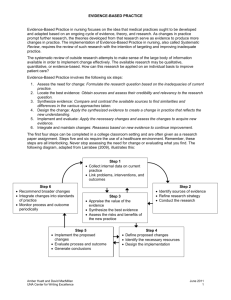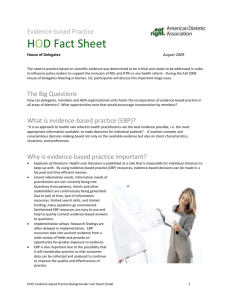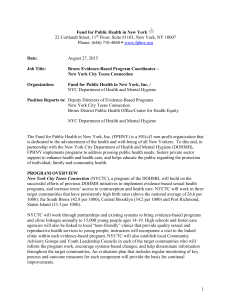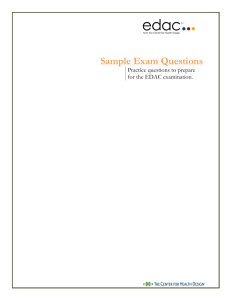Evidence-Based Practice Early Intervention
advertisement
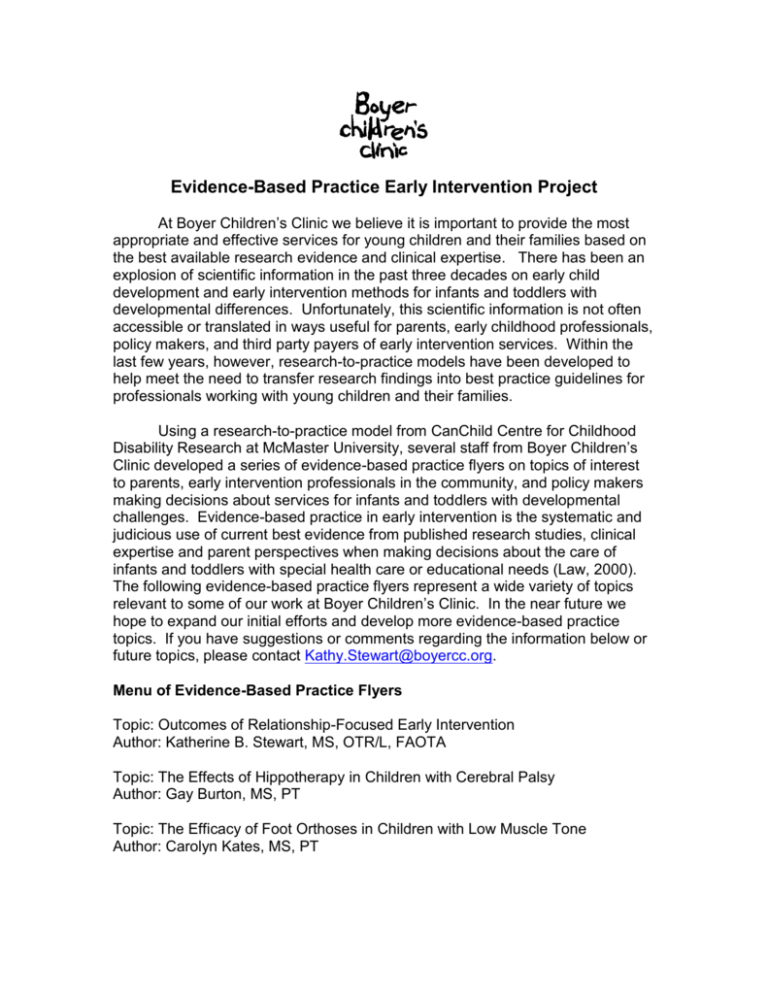
Evidence-Based Practice Early Intervention Project At Boyer Children’s Clinic we believe it is important to provide the most appropriate and effective services for young children and their families based on the best available research evidence and clinical expertise. There has been an explosion of scientific information in the past three decades on early child development and early intervention methods for infants and toddlers with developmental differences. Unfortunately, this scientific information is not often accessible or translated in ways useful for parents, early childhood professionals, policy makers, and third party payers of early intervention services. Within the last few years, however, research-to-practice models have been developed to help meet the need to transfer research findings into best practice guidelines for professionals working with young children and their families. Using a research-to-practice model from CanChild Centre for Childhood Disability Research at McMaster University, several staff from Boyer Children’s Clinic developed a series of evidence-based practice flyers on topics of interest to parents, early intervention professionals in the community, and policy makers making decisions about services for infants and toddlers with developmental challenges. Evidence-based practice in early intervention is the systematic and judicious use of current best evidence from published research studies, clinical expertise and parent perspectives when making decisions about the care of infants and toddlers with special health care or educational needs (Law, 2000). The following evidence-based practice flyers represent a wide variety of topics relevant to some of our work at Boyer Children’s Clinic. In the near future we hope to expand our initial efforts and develop more evidence-based practice topics. If you have suggestions or comments regarding the information below or future topics, please contact Kathy.Stewart@boyercc.org. Menu of Evidence-Based Practice Flyers Topic: Outcomes of Relationship-Focused Early Intervention Author: Katherine B. Stewart, MS, OTR/L, FAOTA Topic: The Effects of Hippotherapy in Children with Cerebral Palsy Author: Gay Burton, MS, PT Topic: The Efficacy of Foot Orthoses in Children with Low Muscle Tone Author: Carolyn Kates, MS, PT Topic: Outcomes of Botulinum Toxin Treatment in Young Children with High Muscle Tone Author: Beth McCarthy, MS, PT Topic: Effectiveness of DIR/Floor Time Approach in Children with Autistic Spectrum Disorders Author: Brooke Greiner, MS, OTR/L Topic: Effects of Gluten-Free and Casein-Free Diets on Behavior in Children with Autistic Spectrum Disorders Author: Kris Echigo, Educator Topic: Long-Term Cognitive Outcomes in Children Born Very Premature Author: Alyssa Norenberg, MS, OTR/L For parents or professionals wanting further information on evidence-based practice, please refer to the following list of websites with their brief description: www.canchild.ca/Default.aspx?tabid=504 (website for Canchild Centre for Childhood Disability Research in Canada) www.aacpdm.org (website for the American Academy of Cerebral Palsy and Developmental Medicine) www.aota.org (website for the American Occupational Therapy Association) www.apta.org (website for the American Physical Therapy Association) www.asha.org (website for the American Speech & Hearing Association) www.cochrane.org (The Cochrane Database of Systematic Reviews) www.researchtopractice.info (systematic reviews of current, best research on issues related to early childhood) KEY ARTICLES Buysse, V. & Wesley, P.W. (2006). Evidence-based practice: how did it emerge and what does it really mean for the early childhood field? Washington, DC: ZERO TO THREE Press. Fetters, L., et al. (2004). Critically appraised topics. Pediatric Physical Therapy, 19-21. Law, M. (2000). Strategies for implementing evidence-based practice in early intervention. Infant & Young Children, 13(2): 32-40. Sackett, D.L., Richardson, W.S., Rosenberg, W.M., Haynes, B.R. (1997). Evidence-based medicine: how to practice and teach EBM. New York: Churchill Livingstone. Strzelecki, M.V. (June 26, 2006). Evidence-based practice: facts and flexibility. OT Practice, 16-18. Bethesda, MD: American Occupational Therapy Association.
